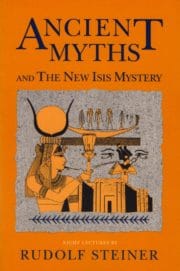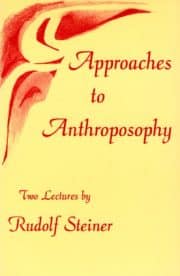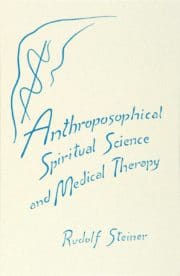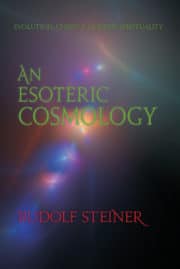Past and Future Impulses in Societal Events
12 lectures, Dornach, March 21 – April 14, 1919 (CW 190)
Barely four months after the end of World War I, with Europe in chaos and exhausted from years of conflict, Rudolf Steiner offered these lectures as a call for hope and renewal. Despite ongoing social troubles around the world, he knew that people had an opportunity to reorganize society in a new way. Steiner responded to this prospect by offering suggestions for creating innovative social structures in harmony with people’s inner needs.
Steiner states that humanity as a whole faces a great challenge that constitutes “crossing the threshold” to the spiritual world. This means that an evolutionary separation is taking place within the human soul among our thinking, feeling, and will. Before this can happen in a healthy way, the outer makeup of society must mirror and support our internal evolution. Steiner points to the urgent need to “threefold” society, separating the activities of culture, economics, and politics. This is a subconscious demand, he asserts. It is not an excuse for inventing cranky ideas in a sect, but for shedding light on what is universally needed!
These important lectures cover numerous themes, including overcoming class distinctions; administration of money, technology and capitalism; antisocial tendencies of nationalism; and future management of international relations.
This book is a translation from German of Vergangenheits- und Zukunftsimpulse im sozialen Geschehen. Die geistigen Hintergründe deer sozialen Frage – Band II (GA 190).
About the Author
Rudolf Steiner (1861–1925) was born in the small village of Kraljevec, Austro-Hungarian Empire (now in Croatia), where he grew up (see right). As a young man, he lived in Weimar and Berlin, where he became a well-published scientific, literary, and philosophical scholar, known especially for his work with Goethe’s scientific writings. At the beginning of the twentieth century, he began to develop his early philosophical principles into an approach to systematic research into psychological and spiritual phenomena. Formally beginning his spiritual teaching career under the auspices of the Theosophical Society, Steiner came to use the term Anthroposophy (and spiritual science) for his philosophy, spiritual research, and findings. The influence of Steiner’s multifaceted genius has led to innovative and holistic approaches in medicine, various therapies, philosophy, religious renewal, Waldorf education, education for special needs, threefold economics, biodynamic agriculture, Goethean science, architecture, and the arts of drama, speech, and eurythmy. In 1924, Rudolf Steiner founded the General Anthroposophical Society, which today has branches throughout the world. He died in Dornach, Switzerland.












Reviews
There are no reviews yet